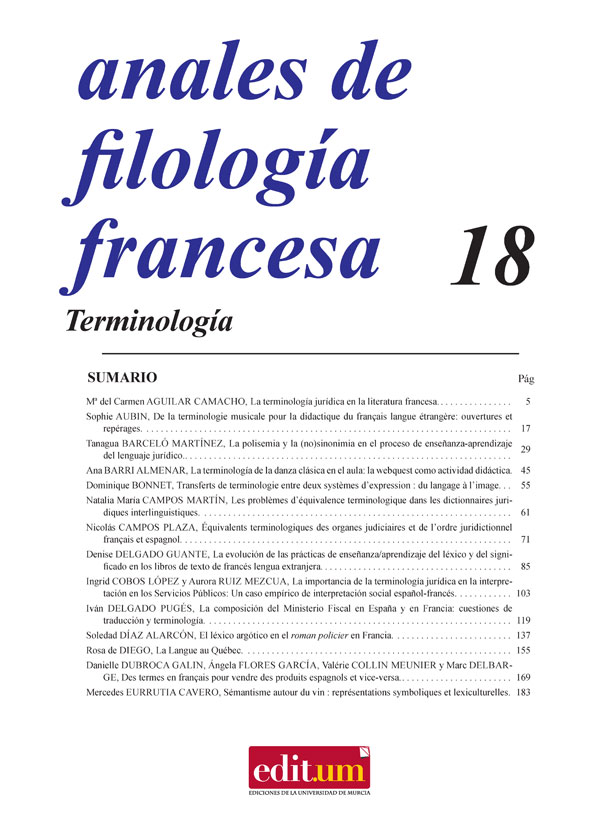La polisemia y la (no)sinonimia en el proceso de enseñanza-aprendizaje del lenguaje jurídico
Résumé
Synonymy and polysemy are two linguistic phenomena which are present in almost all languages, and which are, depending on the cases, a clear sign of the lexical richness of each language community. Besides, they are linguistic figures linked to concepts such as diastratic or diaphasic variation or euphemisms, among others. Specialized languages are not an exception and, far from transmitting the univocity that is usually attributed to them, they are characterized by a more than representative presence of both phenomena. In this paper we aim to prove this statement through the analysis of some terms and we shall also set out the difficulties that synonymy and polysemy pose in the teaching of legal translation.Téléchargements
-
Résumé761
-
PDF (Español (España))596
Las obras que se publican en esta revista están sujetas a los siguientes términos:
1. El Servicio de Publicaciones de la Universidad de Murcia (la editorial) conserva los derechos patrimoniales (copyright) de las obras publicadas, y favorece y permite la reutilización de las mismas bajo la licencia de uso indicada en el punto 2.
2. Las obras se publican en la edición electrónica de la revista bajo una licencia Creative Commons Reconocimiento-NoComercial-SinObraDerivada 3.0 España (texto legal). Se pueden copiar, usar, difundir, transmitir y exponer públicamente, siempre que: i) se cite la autoría y la fuente original de su publicación (revista, editorial y URL de la obra); ii) no se usen para fines comerciales; iii) se mencione la existencia y especificaciones de esta licencia de uso.
3. Condiciones de auto-archivo. Se permite y se anima a los autores a difundir electrónicamente las versiones pre-print (versión antes de ser evaluada) y/o post-print (versión evaluada y aceptada para su publicación) de sus obras antes de su publicación, ya que favorece su circulación y difusión más temprana y con ello un posible aumento en su citación y alcance entre la comunidad académica. Color RoMEO: verde.










